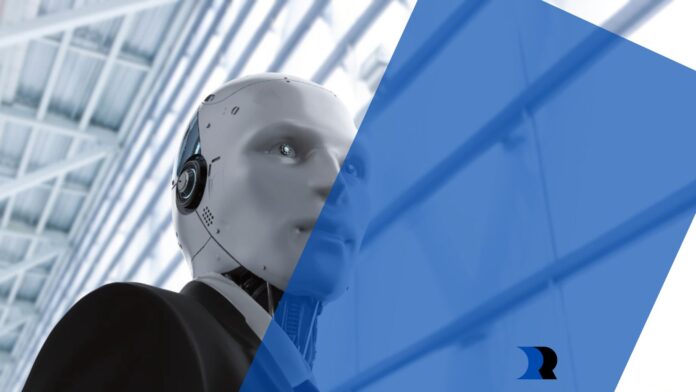Getting a job feels harder than ever, at least if you believe half the posts on Reddit. Maybe that’s true. Maybe it’s just louder now. But one thing hasn’t changed. People still get hired when they have skills companies actually want. And in 2025, that skillset is AI. It’s the shiny new thing, the popular kid, the one everyone suddenly wants to sit next to. You don’t need to build the next ChatGPT to ride the wave. The truth is, most businesses are still figuring out what to do with AI. They’ve read the headlines. They’ve seen the LinkedIn posts. Now they’re staring at a blank spreadsheet wondering if they should be worried. This is where you can come in and say, “Yeah, I can hook that up.” Or you can help building the next ChatGPT if that’s your thing. Job listings are shifting. Roles like “AI content strategist,” “automation lead,” or “LLM integrator” didn’t even exist a few years ago. Now they’re showing up in startups, agencies, even government job boards. And most of them don’t require traditional experience. They just want proof you know what you’re doing. A few project links, a GitHub repo or a Notion page with screenshots. If you’re early in your career, this is the moment you hope for, where there are few true experts and the playing field is wide open. If you’re further along, it’s a chance to reposition. So let’s get through a list of skills you need to have if you’re looking for a job in AI.
Hard vs Soft Skills in the AI Industry
Let’s get this out of the way. Knowing how to write a killer prompt won’t matter if you’re unbearable to work with. And being everyone’s favorite coworker won’t save you if you can’t tell a Python script from a pasta recipe. The AI industry, just like any other industry pretending to be brand new, is built on two things: people who can do the work, and people who can handle not being insufferable while doing it. This is the part everyone obsesses over. You’ve got the usual suspects: Python, machine learning frameworks, APIs, prompt engineering, vector databases, token limits, you name it. It’s what that makes recruiters perk up. Even if you’re not on the technical side, hard skills still matter. Can you use AI tools to automate content workflows? Analyze data faster than your boss can say “dashboard”? Build a decent GPT-powered customer support bot that doesn’t hallucinate wildly about refund policies? Now the part nobody talks about until you get passed over for someone less talented but more tolerable. Can you explain what you did without sounding like you’re auditioning for TEDx? Can you work in a team without turning every group chat into a monologue? Can you spot when the tool is spitting out garbage and push back before it becomes a problem? That’s the real value of soft skills. Communication, adaptability, judgment. These are boring words until your project goes sideways and someone needs to calm the client down while fixing the mess in the background. AI is great at crunching data. It’s still pretty bad at people. That’s your job. What’s the sweet spot for 2025? Enough hard skills to build, automate, or optimize something. Enough soft skills to explain it without condescension and survive in meetings longer than 15 minutes.
Great Hard Skill for 2025: Machine Learning & Deep Learning
If AI were a band, machine learning and deep learning would be the drummer and the bassist. Not always flashy, but nothing works without them. Machine learning is about feeding an algorithm enough data so it starts to recognize patterns and make decisions. Deep learning takes that to another level, using stacked neural networks to deal with messier inputs like images, voice, or human language. If you want to work with either, you’ll need to get comfortable with libraries like TensorFlow, PyTorch, and scikit-learn. You should also know what things like decision trees and random forests actually do. Deep learning has its own set of tools: Transformers (the architecture, not the robots), RNNs, and CNNs. If you can’t iterate, tune, and troubleshoot, you’re stuck at demo level forever. And if your end goal is to work on recommender systems, computer vision, or NLP, these skills aren’t optional, they’re the price of admission.
Great Hard Skill for 2025: Data Engineering
Without decent data, even the smartest model is useless. That’s where data engineering comes in. It’s not the glamorous part, but if the pipes are clogged, nothing flows. You’ll need to know how to build data pipelines that don’t collapse under pressure. SQL is table stakes. Add in cloud storage (GCP, AWS, take your pick), and you’re starting to look employable. Bonus points if you know how to clean, normalize, and structure messy real-world data because that’s what you’ll be dealing with 90% of the time. Think of it this way: bad data in means bad results out. And no amount of fancy model tuning will fix a broken foundation.
Great Hard Skill for 2025: Programming in Python
If you’re not fluent in Python, AI will chew you up and spit you out. This is the main language of the field, and not just for the cool stuff. You’ll be writing scripts, preprocessing data, debugging models, and duct-taping together APIs. Writing clean, modular code matters. No one wants to inherit your spaghetti mess six months later. Get familiar with libraries like NumPy, pandas, and Hugging Face Transformers. They’ll save you time and possibly your job. If you want to stand out, put your work where people can see it. A half-decent GitHub repo beats a bullet point on a résumé every time. It shows you can build things that run and don’t crash the first time someone else tries to use them.
Great Hard Skill for 2025: MLOps & Model Deployment
Building a model is cute. Getting it into production is the real challenge. If you’re serious about MLOps, you’ll need to know how to get your model out of the notebook and into the real world. That means CI/CD pipelines, automated testing, and containers. Yes, Kubernetes. Yes, Docker. Yes, you’ll curse your way through setting them up the first few times. You should also be able to work across platforms like Azure ML, GCP Vertex AI, AWS SageMaker. Pick one and get comfortable with the others later. Companies are looking for people who can take a model and actually ship it, not just wave a prototype around in a meeting. The difference between a hobby and a career in AI? One ends at the proof-of-concept stage. The other makes it to production and gets used.
Great Soft Skills for 2025: Communication and Collaboration
You can be the smartest person in the room, but if no one understands what you’re saying it won’t matter. AI work doesn’t happen in a vacuum. You’re usually part of a team with people who speak different “languages”: engineers, analysts, product managers, business folks. If you can’t explain what your model does in plain English you’re just adding friction. And nobody has time for that. Good communication is about knowing when to use a graph instead of a paragraph, when to skip the jargon, and when to shut up and listen. Most projects succeed or die based on whether the team can actually align. Remote work doesn’t make this easier. Half the time you’re explaining things over Zoom to someone who has Slack open in another window and a toddler in the background. So clarity matters.

Where to Put Your Bets for the Future?
Trying to predict where AI is headed is hard. Every week there’s a new tool, a new model, or a new demo that makes the last one look like a beta project. Right now, the hiring focus is on hard skills like coding, model tuning, all the technical stuff. But let’s be honest: a lot of that is on track to get automated. Writing boilerplate code or adjusting hyperparameters won’t be a human job for long. At least that’s what it seems. What won’t go away? The ability to connect the dots. To ask better questions. To explain complex ideas without sounding like you copied it off a whitepaper. That’s where soft skills come in.
The edge will belong to people who can code and communicate. Who can work with the tools without acting like the tools. Who know when to hand things off to automation and when to bring in nuance. That kind of judgment isn’t something you download. In the long run, technical skills will get you in the door. But what keeps you there and moves you forward is your ability to think clearly, work with others, and say something that actually lands. AI will handle the heavy lifting. Your job is to make it useful. That’s the difference.


